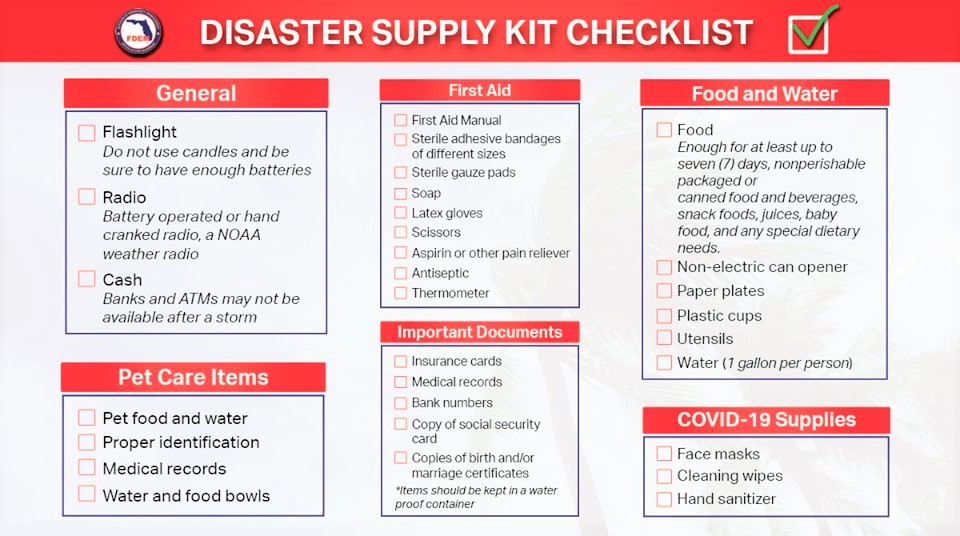Hurricane Season begins Monday, June 1 and area residents are encouraged to have a detailed plan in place.

Here are some tips from experts:
- The Centers for Disease Control recommends being prepared with at least two cloth face coverings for each family member in the event you need to evacuate. (Children under 2 and those having trouble breathing should not wear face coverings). Also, be sure to have hand sanitizer.
- Prepare a First Aid kit, including your medical insurance and Medicaid/Medicare cards and copies of prescriptions that can be refilled for up to six months. Also include an up-to-date list of all prescription medications and necessary medical supplies. Write down dosing instructions, the names of generic equivalents and known allergies. Gather your vital documents and records and make duplicate copies to be stored in a weatherproof container – or place them on a password-protected memory stick.
- It could be difficult to fill prescriptions after a large-scale disaster. That’s why it is important that you take action to prepare and protect the prescriptions, over-the-counter drugs and vitamins you need before hurricane season. Protect yourself and others when filling prescriptions by limiting in-person visits to the pharmacy. Sign up for mail order delivery or call-in your prescription ahead of time and use drive-thru windows or curbside pickup if available.
- Create a support network of family, friends and others who can assist you during an emergency and share your disaster plans with them. Practice your plan with them.
Make sure someone in your support network has an extra key to your home and that they know where you keep your emergency supplies. If you have a communication-related disability, note the best way to communicate with you. - If you undergo routine treatments administered by a clinic or hospital, find out their emergency plans and work with them to identify back-up service providers. You will need supplies to get through a storm and for the unpleasant aftermath. Have enough non-perishable food, water and medicine to last each person in your family a minimum of three days. Electricity and water could be out for at least that long.
- You also will need extra cash, a battery-powered radio and flashlights. You may need a portable crank or solar-powered USB charger for your cell phones.
- A disaster can disrupt mail service for days or weeks. If you depend on Social Security or other regular benefits, switching to electronic payments is a simple, important way to protect yourself financially before disaster strikes. It also eliminates the risk of stolen checks. The U.S. Department of the Treasury recommends direct deposit to a checking or savings account. If you get federal benefits, you can sign up by calling 800-333-1795 or sign up online.

